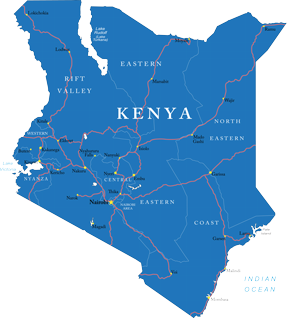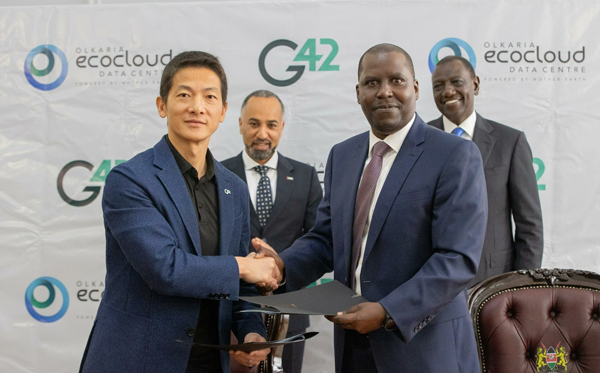For Abu Dhabi-based artificial intelligence company G42, “AI” could well stand for “Africa investment.”
That’s certainly what the company has been up to in 2024. In May, G42 and Microsoft announced an agreement with the Republic of Kenya’s Ministry of Information, Communications and the Digital Economy that involves $1 billion invested in a package of digital economy projects that includes a new data center that will be built by G42 and its partners to run Microsoft Azure in a new East Africa Cloud Region.
A letter of intent formalizing the partnership was signed in May as part of Kenyan President William Ruto’s visit to the United States, the first state visit to Washington, D.C., by a sitting African head of state in nearly two decades.

“This partnership is bigger than technology itself,” said President Ruto in a release. “It is about coming together of three countries with a common vision of a nation empowered by technology, where every citizen has the opportunity to thrive in the global digital landscape.”
“This represents the single largest and broadest digital investment in Kenya’s history and reflects our confidence in the country, the government, its people and the future of East Africa,” said Brad Smith, vice chair and president of Microsoft.
The Olkaria data center campus will become operational within 24 months of the signing of definitive agreements, according to the announcement. The Olkaria geothermal field is located near Lake Naivasha around 75 miles northwest of Nairobi in the Great Rift Valley. Earlier in the year, President Ruto was present at the signing of an MoU between G42 and Kenya-based data center developer EcoCloud to construct the mega data center powered by Kenya’s 10 gigawatts of geothermal energy. The facility is planned to have initial capacity of 100 MW, but with the potential to build up to 1 gigawatt.
When EcoCloud and G42 signed their agreement in March, they noted that their partnership “is not just about erecting a digital infrastructure; it’s a foundation for a comprehensive ecosystem that includes cloud services and artificial intelligence, catering to the vibrant and youthful population of Kenya.”
The Federation of Kenya Employers says young people aged 15 to 34, who make up 35% of the Kenyan population, have the highest unemployment rate of any age cohort at 67% (the overall national rate is 12.7%). “Africa has a population of almost 200 million people aged between 15 and 24,” says the Federation. “This category makes up 40% of the workforce, and 60% of the unemployed active labor force. This number is expected to double by 2045, bringing a big challenge on African economies since high youth unemployment is an impending threat to stability in Africa.”
Skills and Connectivity
Microsoft and G42 aim to turn those numbers into an impending opportunity. G42 has begun work to train an open-source large language AI model in Swahili and English. “To build on this and help accelerate advanced research in Kenya,” the companies said, “Microsoft and G42 will increase their combined collaboration and support for local universities, through the Microsoft Africa Research Institute, the Microsoft AI for Good Lab, the Mohammed Bin Zayed University of Artificial Intelligence in Abu Dhabi and select universities from Kenya and East Africa.”
An East African Innovation Lab in Nairobi will aim to “help Kenyan and other East African startups, entrepreneurs, companies and organizations develop and implement cloud and AI services, making use of support from Microsoft developers who work in the company’s Africa Development Center, which has 500 employees in Nairobi.
The partnership’s skills training plank will include offering digital and AI skilling programs to all government employees, a cybersecurity skilling program for more than 2,000 people per year, and a business skilling program for young entrepreneurs aged 18 to 24. And Microsoft says it will “continue to expand its work to bring last-mile wireless internet access to 20 million people in Kenya and 50 million people across East Africa by the end of 2025.”

